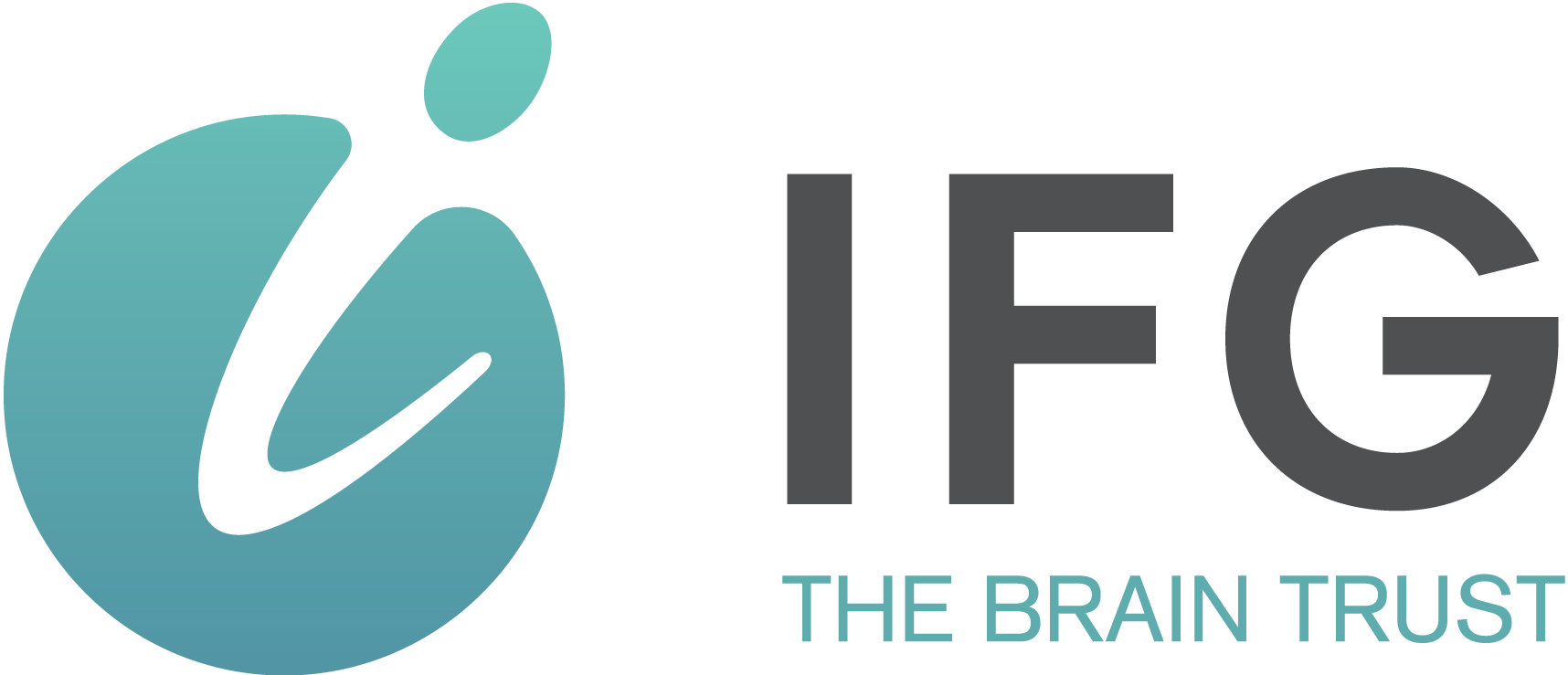- December 21, 2023
Ethics in Financial Planning: Navigating Complex Situations with Integrity

As an independent financial advisor, it’s crucial to uphold a strong sense of ethics in every aspect of your practice. Ethics in financial planning involves understanding your fiduciary duty, upholding the principles of integrity, competence, confidentiality, and professionalism, adhering to regulatory and industry standards, and promoting ethical practices within your firm.
In this engaging guide, we’ll provide you with valuable insight and advice on how to navigate complex situations while maintaining the highest level of integrity — so you can better fulfill your obligation to safeguard your clients’ best interests.
Understanding Fiduciary Duty: Duty of Care and Duty of Loyalty
As a financial advisor, your role is characterized by a fiduciary duty, a commitment to place the welfare of your clients above all else. This fiduciary duty legally and ethically binds you, mandating the provision of sound, beneficial advice formed from good faith actions and prudent judgment. The concept of fiduciary duty is foundational to the advisor-client relationship, acting as a beacon of trust and integrity.
Fiduciary duty is structured around two key elements: the Duty of Care and the Duty of Loyalty. The Duty of Care necessitates deploying the optimal level of diligence, skill, and knowledge when making decisions or offering recommendations. The primary goal is to address the financial needs of your clients in the best way possible. This duty compels advisors to stay informed about market trends, seek comprehensive understanding of clients’ financial situations, and propose recommendations deliberately and carefully.
On the other hand, the Duty of Loyalty represents an unconditional promise to prioritize your clients’ interests above all else. The pursuit of personal goals or relationships should never jeopardize this commitment. This duty prohibits actions that may result in conflicts of interest, ensuring that any advice given or decisions made are purely in the best interest of the client.
Upholding this duty may require transparency around potential conflicts, or even refusal to engage in certain transactions to prevent compromising the clients’ financial interests.
Together, these duties form the backbone of fiduciary duty, serving as a robust guide for financial advisors in their mission to provide the highest standard of service to their clients.

Embracing Integrity, Competence, Confidentiality, and Professionalism
There are several key principles that underpin ethics in financial planning, including:
- Integrity: Integrity forms the cornerstone of financial planning, requiring advisors to exude honesty and fairness in all dealings. It’s about going beyond mere compliance with laws and regulations, and making decisions rooted in ethical judgment.
This includes being transparent with clients, colleagues, and regulators, and conducting all operations in a manner that upholds the faith placed in them. It also involves taking accountability for one’s actions, fostering a culture of trust that strengthens client-advisor relationships.
- Competence: Competence is a continuous commitment to learning and growth in the fast-paced financial sector. Advisors are expected to keep abreast with current industry trends, evolving regulations, and innovative financial strategies.
They must engage in ongoing education and professional development to enhance their skills, ensuring that they can provide the most up-to-date and effective advice to their clients. Competence is not a static state—it’s a dynamic process that enables advisors to meet the diverse needs of their clients.
- Confidentiality: Confidentiality is paramount in maintaining client trust. Advisors deal with sensitive information daily and are obligated to handle this information with the utmost care. This involves implementing robust data security measures and maintaining strict privacy protocols. Confidentiality also extends to respecting clients’ choices and preserving their dignity, particularly when dealing with sensitive financial matters.
- Professionalism: Professionalism is the commitment to upholding the highest standards of conduct in one’s practice. It’s about treating clients, colleagues, and regulators with utmost respect and dignity. It means conducting oneself in a manner that reflects positively on the profession, upholding the reputation and integrity of the financial planning sector. It also entails adherence to a strict code of ethics, which is pivotal in creating a positive work environment and fostering client confidence.
Adhering to Regulatory and Industry Standards
Financial advisors must navigate a complex landscape of laws and regulations while maintaining adherence to industry standards. Key elements of compliance include:
- Financial Industry Regulators: One of the crucial components of compliance is gaining an in-depth understanding of the mandates established by Financial Industry Regulators. Advisors need to stay informed and up-to-date on the latest rules and requirements set forth by regulatory bodies like the Securities and Exchange Commission (SEC), the Financial Industry Regulatory Authority (FINRA), and state-level authorities. This ensures their practices align with current legal stipulations, thereby safeguarding both their clients’ interests and their professional standing.
- Professional Organizations and Certifications: In a rapidly evolving sector like financial planning, professional development is an ongoing journey. Advisors must seek relevant certifications such as Certified Financial Planner (CFP), Chartered Financial Consultant (ChFC), and Certified Public Accountant (CPA), among others.
These credentials, coupled with active membership in professional organizations, serve as a testament to an advisor’s competence, commitment to continuous learning, and adherence to industry best practices, standards, and ethical guidelines.
- Code of Ethics and Professional Responsibility: A cornerstone of an advisor’s professional conduct is the unwavering commitment to a Code of Ethics and Professional Responsibility. They must understand, internalize, and consistently adhere to the code of ethics outlined by their respective professional organizations.
This commitment extends beyond mere compliance to embrace every aspect of their practice, fostering a culture of integrity, accountability, and client-centric service. Through these demonstrated commitments, financial advisors can establish a solid foundation of trust and professionalism, encapsulating the essence of their pivotal role within the financial planning sector.
Ethical Dilemmas in Financial Planning
Navigating ethical dilemmas in financial planning can be challenging, especially when your clients’ interests may conflict with yours or even with the law.
- Conflicts of interest: One of the most common ethical dilemmas in financial planning is when your interests as a financial planner come into conflict with your clients’ best interests. For example, if you are incentivized to recommend certain investment products or strategies that may not be the best fit for your client, you are faced with a conflict of interest.
To avoid this situation, it is important to clearly disclose all potential conflicts of interest and ensure that your recommendations are always in your clients’ best interests.
- Confidentiality and privacy: Another ethical dilemma that financial planners may face is respecting their clients’ privacy. Sometimes, clients may share sensitive information that needs to be kept confidential, such as information about their health, income, or family matters.
While it is important to maintain confidentiality, financial planners should also be aware that there are some circumstances in which they may have to report such information to regulatory authorities or other third parties, such as in cases of suspected fraud or abuse.
- Fair fees and compensation: Financial planners have an obligation to charge fair and reasonable fees for their services. However, this can be a tricky area as there are no clear guidelines or standards for what constitutes fair compensation.
Some financial planners may be tempted to charge excessive fees or commissions, which can create conflicts of interest or undermine their clients’ trust. To avoid this, financial planners should always disclose their fees and commissions in writing and ensure that they are reasonable and fair for the services provided.
- Balancing risk and reward: In financial planning, risk and reward are two key considerations. While taking calculated risks can lead to greater rewards for your clients, it can also expose them to potential losses and risks.
When facing this ethical dilemma, financial planners should always consider their clients’ risk tolerance and financial goals, as well as their own professional standards and risk management practices. It is important to strike a balance between risk and reward that is sustainable and appropriate for your clients’ needs.
- Dealing with challenging clients: Finally, financial planners may encounter challenging clients who may refuse to follow their advice or instructions. This can be a difficult ethical dilemma, as it may require you to terminate your professional relationship with the client if their behavior or actions pose a risk to their financial well-being or your professional standards.
It is important to handle such situations with tact and professionalism, while always prioritizing your clients’ best interests and your own ethical obligations.

The Cost of Unethical Behavior
Unfortunately, not all financial advisors live up to the expectations we’ve outlined in this article. There are financial advisors who engage in unethical behavior which poses a risk to the financial future of their clients.
Unethical behavior can have far-reaching consequences, such as:
1. Keeping Damage to Reputation: Unethical behavior can inflict lasting damage to the reputation of a financial advisor. Clients can quickly lose trust and confidence in an advisor caught engaging in unethical behavior. Word about the advisor’s misdeeds can spread rapidly, causing loss of clients leading to revenue loss to the advisor’s firm.
The cost of repairing the reputation of an advisor can be significant, involving time and energy, not to mention the professional and personal embarrassment experienced by the advisor.
2. Legal Penalties: Financial advisors caught engaging in unethical behavior are likely to face legal action following the violation of ethical codes. Depending on the severity of the offense, legal penalties can range from fines, censure, suspension or revocation of the advisor’s license. Additionally, the advisor’s firm can also incur financial penalties and may suffer reputational damage leading to revenue loss as well.
3. Reduced Earnings: It is in the best interests of financial advisors to act in the best interests of their client. Acting in a self-serving manner could ultimately lead to a reduction in earnings for advisors.
Following unethical practices, advisors could lose clients, resulting in reduced income for the advisor and their firm. Clients always expect their advisors to help them achieve their financial goals through ethical and sound investment decisions.
4. Damage to Clients’ Financial Future: When clients entrust their finances to financial advisors, they expect transparency, objectivity, and financial guidance. Unethical behavior can have a significant effect on clients’ financial future. Dishonesty, deception, and concealment of information by an advisor can lead to clients making ill-informed decisions and undertaking financial risks that are not suited to their financial goals.
The aftermath of an unethical financial decision could have lasting negative effects, including loss of money, financial strife, and potentially long-term damage to their financial security.
5. Potential Criminal Record: When financial advisors engage in egregious unethical behavior, it could result in legal repercussions beyond license suspension and loss of reputation. For instance, when an advisor is found guilty of embezzlement, fraud, or other financial crimes, they could face criminal charges. A criminal conviction could result in incarceration, loss of license, and other penalties.

Promoting Ethics in Financial Planning
As independent financial advisors, you can take a proactive approach in promoting ethical practices within your business.
1. Create a culture of ethics: Cultivating an ethical atmosphere for financial advisors goes beyond rule-setting; it necessitates nurturing an environment that embodies principles of integrity, respect, and fairness. A crucial way to do so is encouraging an open dialogue, enabling advisors to freely communicate about ethical quandaries they encounter. This approach enhances transparency and facilitates collective learning.
Moreover, it’s paramount to foster an ambiance that embraces open discussions about moral dilemmas. The ultimate goal is to ensure the firm’s protection, build trustworthiness, improve client relationships, and achieve overall success in the business.
2. Stay up-to-date with regulations: In this dynamic field, regulations frequently change, requiring financial planners to continuously educate themselves to remain compliant and provide the best service to their clients. This can be achieved through various ways such as attending industry conferences, participating in webinars, or enrolling in relevant courses.
Investing in regular training sessions is also key.
These sessions, often provided by professional associations or regulatory bodies, are designed specifically to keep financial planners up-to-date on the latest rules and regulations. Many of these organizations also offer certification programs that require ongoing education, thereby ensuring that certified members are always current with their knowledge.
Moreover, financial planners should consider subscribing to relevant industry publications and newsletters that provide updates on regulatory changes. It’s also beneficial to be part of professional networks where members share information and insights.
By staying informed and adapting to new regulations, financial planners can maintain their professional competence, uphold their ethical obligations, and ultimately enhance their clients’ trust in their advice and guidance.
3. Continuing education: Continuing education plays a pivotal role in promoting ethical practices within the realm of financial planning.
Given the intricate, dynamic nature of financial markets and regulations, it’s imperative for financial planners to perpetually update their knowledge base. This continual learning process promotes an understanding of both new and existing ethical guidelines, ensuring their practices align with the highest standards of integrity and professionalism.
Moreover, this understanding helps in identifying potential ethical dilemmas that may arise, thereby equipping them to make informed, ethical decisions. It also fosters a culture of accountability and transparency, which is crucial in maintaining client trust and confidence.
In essence, commitment to continuing education is not merely a professional obligation, but a critical component in upholding ethical practices, fortifying credibility, and ensuring sustained success in the financial planning field.
4. Establish a code of conduct: Establishing a code of conduct is a fundamental step in promoting ethical practices in financial planning. This set of guidelines should clearly articulate the values and principles the professionals are expected to uphold. It serves as a roadmap for financial planners, guiding them in their decision-making process.
The code should encompass aspects such as confidentiality, competence, integrity, and professionalism, among others. It is important that the code is not just a document, but ingrained into the organization’s culture. Regular training sessions should be conducted to ensure understanding and adherence to these guidelines.
Violations of the code should be treated seriously, with appropriate disciplinary measures in place. Ultimately, the code of conduct fosters an environment of trust and respect with clients, and enhances the reputation of the financial planning profession as a whole.
5. Engage clients in decision-making: Encouraging client participation in decision-making processes promotes ethical practices in financial planning.
This collaborative approach ensures transparency, fostering trust and strengthening client relationships. It empowers clients, giving them a sense of control and personal investment in their financial future, thereby increasing their understanding and acceptance of the strategies employed.
Moreover, effective client engagement can help identify potential ethical issues, as an informed client may raise queries that make a planner take stock of the ethical dimensions of their decisions.
Thus, client engagement not only reinforces ethical practice but also enhances the credibility and integrity of our financial planning services.
How IFG Can Help You Maintain Ethical Practices
Maintaining ethical standards in your practice can be burdensome for independent financial planners, particularly as the expectations and requirements continue to shift and evolve. Nonetheless, with the dedicated assistance of Integrated Financial Group (IFG), adhering to ethics has become much simpler.
IFG furnishes a host of resources and instruments that are beneficial for financial planners who aim to manage the intricacies of upholding their professional code of conduct. From continuous ethics audits to handbooks and beyond, IFG stands as a dependable partner in helping independent planners remain informed and observant of all ethical guidelines. With IFG’s backing, financial planners can concentrate on providing remarkable service to their clients without the concern of keeping up with the latest ethical requirements.
By fostering a culture focused on ethics, independent financial advisors can navigate complex ethical situations with integrity. Stay abreast of industry regulations, invest in continuing education, and establish consistent codes of conduct to ensure ethical behavior prevails within your organization.


